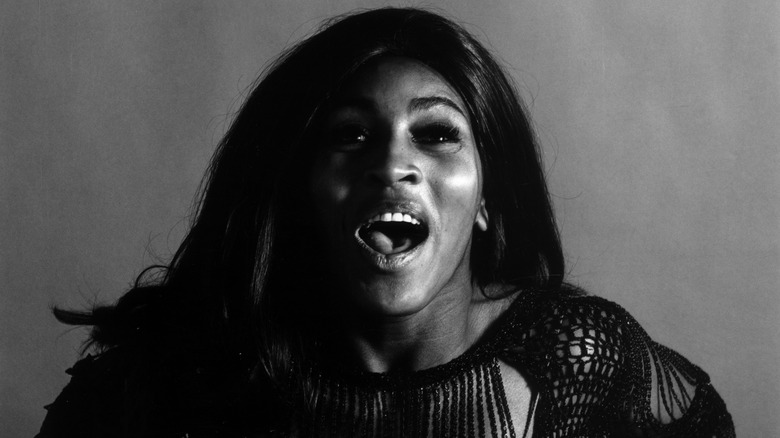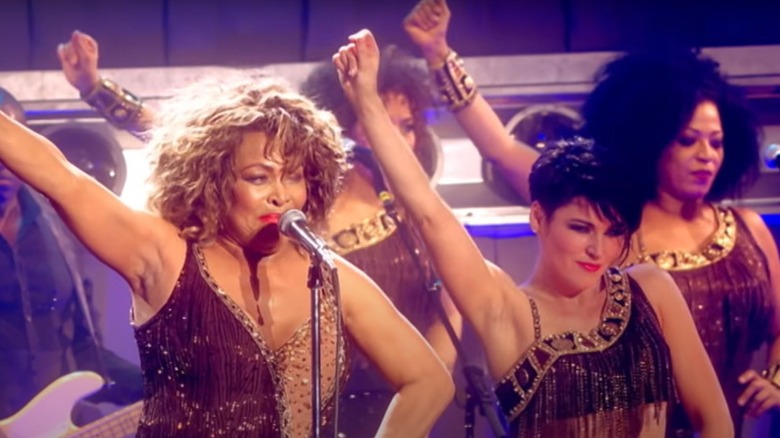The Meaning Behind The Song Proud Mary
Some songs are so good and so catchy that folks sometimes sing along to them — generation after generation — without even knowing what they mean. Such is the case with "Proud Mary," written by John Fogerty and performed by Creedence Clearwater Revival for their second album, 1969's "Bayou Country," and famously covered by the late and legendary Tina Turner. But make no mistake: Turner knew exactly what the song meant. When she and then-husband Ike released their version of "Proud Mary" in 1971 — a romping, rollicking, frolicking interpretation — it wisely placed the endlessly energetic Turner and the Ikettes in the forefront. It also helped elevate Turner's career to higher heights of stardom, as Biography explains, heights that never really waned all the way to Turner's 2023 death.
While we might not know precisely what Tina Turner was thinking when she chose to cover "Proud Mary," we can glean as much from the song itself. "Proud Mary," simply put, is a tale about leaving the daily stress of city life behind to seek a quieter, happier, and more peaceful life, as Extra Chill describes. The song's riverboat imagery is symbolic of continuing to roll, roll down the river of life and not worry along the way. Refinery29 adds another layer to the story by telling us that Fogerty imaged "Proud Mary" as a female domestic servant for the well-to-do. "She gets off the bus every morning and goes to work and holds their lives together. Then she has to go home," Fogerty is quoted as saying in the book "Bad Moon Rising: The Unofficial History of Creedence Clearwater Revival."
Keep on burnin'
In 2018, "Proud Mary" writer John Fogerty talked to Rolling Stone about the purpose of his song. He said, "I wrote the song about a mythical riverboat, cruising on a mythical river, in a mythical time. Perhaps, the setting was 'back in time' on the Mississippi River. It was obviously a metaphor about leaving painful, stressful things behind for a more tranquil and meaningful life." Such sentiments are universal, and might contribute to the light, ebullient feeling that "Proud Mary" communicates even if listeners don't know the song's precise meaning, or mistakenly believe that the song is about rolling up a joint, per Extra Chill. At the time of writing "Proud Mary," Fogerty had recently left the National Guard and captured his sense of freedom in the song.
Freedom, lightness, and tranquility might have been exactly what Tina Turner herself wanted when she covered "Proud Mary" back in 1971. It's also the spirit she embodied every time she performed the song. In 1978 Turner divorced her husband and performance partner Ike Turner, and revealed that he'd been physically abusive, a chronic cheater, and heavy into drugs, per Biography. It was during that time that Turner got on stage, rocked a song about liberation from woes, and then continued to champion that song all the way to her final, 2009 tour, watchable in part on Turner's YouTube channel. It's doubtful that anyone could better embody the lyrics, "Big wheel keep on turnin' / Proud Mary keep on burnin'."

